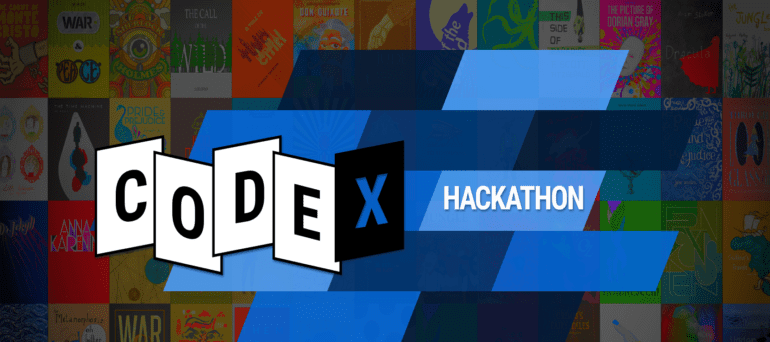TL;DR:
- Stanford Law School hosts the world’s first hackathon focused on law and Large Language Models (LLMs).
- CodeX, the Stanford Center for Legal Informatics, organizes the event in collaboration with the Stanford Computer Science Department.
- Over 150 participants from diverse backgrounds participate in the 12-hour hackathon.
- Teams compete in technical and non-technical tracks, developing innovative tools and solutions for the legal industry.
- Notable projects include an AI-powered tool for litigators, an automated contract negotiation system, and a 3D avatar providing legal guidance.
- The hackathon showcases the transformative potential of LLMs and sets the stage for future advancements.
- The event fosters interdisciplinary collaboration and highlights the intersection of law and technology.
Main AI News:
The prestigious halls of Stanford Law School (SLS) recently played host to a groundbreaking event at the forefront of law and Large Language Models (LLMs) such as ChatGPT. This historic hackathon brought together approximately 150 participants for a 12-hour-long session of engineering, brainstorming, and collaboration. Spearheaded by CodeX, the Stanford Center for Legal Informatics, this interdisciplinary gathering marked a significant milestone in the intersection of computational law and cutting-edge language models.
The hackathon was conceived by Pierre-Loic Doulcet, a CodeX Fellow and computational contract engineer at AXA, one of the world’s leading multinational insurance companies. Inspired by the captivating discussions at the renowned FutureLaw conference, Doulcet envisioned a hackathon centered explicitly on the application of LLMs in the legal field. Recognizing the transformative potential of these models, he sought to capitalize on the energy of FutureLaw and create an unprecedented event dedicated to exploring their possibilities within the law.
With remarkable efficiency, the CodeX team orchestrated the public hackathon in just over two weeks. Over 40 teams, comprised of both technical and non-technical experts, assembled to compete for prestigious prizes, including cash awards and mentorship opportunities. The participants encompassed a diverse range of backgrounds, including Stanford law, computer science, and engineering students, as well as seasoned professionals from the legal and technical industries.
Jesse Shulman, a JD candidate at SLS, collaborated with a team of skilled engineers to develop an innovative product named Devil’s Advocate. This groundbreaking tool aims to assist litigators by enabling them to test, visualize, and receive feedback on their arguments before presenting them in court. By leveraging artificial intelligence (AI) agents trained to analyze and critique legal arguments, Devil’s Advocate empowers litigators to refine their strategies and enhance their effectiveness. Shulman, who harbors ambitions of launching his own legal AI company, believes that AI has the potential to revolutionize legal practice, akin to the transformative impact of technologies like Microsoft Word and email.
Jay Mandal, a CodeX Fellow and Chief Operating Officer at SAP, participated in the hackathon and penned a blog post for the CodeX website, expressing his excitement about the event. Mandal drew parallels to the revolutionary ecosystem that emerged during his tenure at Apple during the iPhone era, highlighting the immense promise and potential for groundbreaking ideas and companies across various industries.
The hackathon’s finalists generated a plethora of cutting-edge ideas and tools. Notable concepts included an automated contract negotiation tool employing generative AI agents to facilitate negotiations, a 3D avatar of a lawyer capable of engaging in verbal conversations and providing basic legal guidance, and an automated system for creating pre-populated legal complaints by leveraging news, reports, and social media data related to recent significant events impacting a specific population. Additionally, participants showcased tools for evaluating corporate compliance with salary disclosure laws, enhancing transparency in hiring processes, as well as document summarization tools for efficient due diligence and analysis of depositions and court documents.
The event also featured an inspiring contribution from a 16-year-old coder who developed a tool aimed at granting individuals immediate access to relevant case law and other data. By providing legal resources to underrepresented minorities and economically disadvantaged individuals, this solution empowers them to navigate the legal system and avoid coerced guilty pleas.
Megan Ma, a CodeX Fellow and Assistant Director, expressed her enthusiasm for the hackathon’s success and revealed plans to establish it as an annual event, potentially integrating it with FutureLaw. Ma believes that this trailblazing event has set the stage for future advancements and looks forward to what lies ahead.
Conclusion:
The successful organization of the world’s first law and Large Language Models hackathon by CodeX signifies the growing importance of technology in the legal industry. The event brought together experts from law, computer science, and engineering to explore the application of LLMs in legal practice. This convergence of fields presents significant opportunities for the market, including the development of AI-powered tools for litigators, automated contract negotiation systems, and enhanced access to legal information.
The hackathon’s success indicates a rising trend in the utilization of LLMs and paves the way for future innovations that can transform the legal landscape. As businesses and law firms embrace these advancements, they can expect increased efficiency, improved decision-making processes, and enhanced client services. The market is poised for disruption as the intersection of law and technology continues to redefine the way legal professionals operate.

